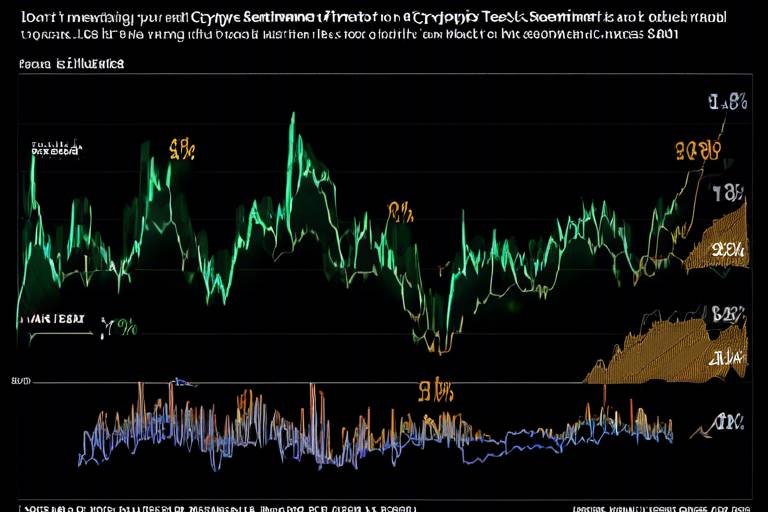Understanding the Legal Implications of Cryptocurrency Trading
In the fast-paced world of cryptocurrency trading, understanding the legal implications can feel like navigating a maze. With digital currencies like Bitcoin and Ethereum soaring in popularity, the legal landscape surrounding them is evolving just as quickly. This article aims to shed light on the intricate web of regulations, compliance issues, and potential risks that traders and investors face in this rapidly changing financial market. Whether you're a seasoned trader or just dipping your toes into the crypto waters, grasping these legal nuances is crucial for ensuring your investments are secure and compliant.
The regulatory framework governing cryptocurrency trading varies significantly across different jurisdictions, creating a complex environment for traders. In the United States, for example, multiple agencies play vital roles in overseeing compliance and enforcement. The Securities and Exchange Commission (SEC) is primarily responsible for regulating securities, which can include certain cryptocurrencies. Meanwhile, the Commodity Futures Trading Commission (CFTC) oversees derivatives and futures contracts related to cryptocurrencies. Additionally, the Financial Crimes Enforcement Network (FinCEN) enforces anti-money laundering (AML) regulations that apply to cryptocurrency transactions.
Understanding which agency governs your activities can be a daunting task, but it’s essential for avoiding potential legal pitfalls. Regulations can change rapidly, often in response to market dynamics or incidents of fraud. Therefore, staying informed about the latest developments is crucial for any trader looking to navigate this complex landscape.
When it comes to cryptocurrency, tax obligations are often a hot topic. Many traders are unaware that the IRS treats cryptocurrencies as property, meaning that any gains or losses must be reported just like stocks or real estate. This can lead to some surprising tax implications, especially when it comes to capital gains taxes. Traders must be diligent in tracking their transactions to ensure accurate reporting and compliance with tax laws.
Capital gains tax applies to the profit made from selling cryptocurrencies. The distinction between short-term and long-term gains is critical here. Short-term gains, from assets held for less than a year, are taxed at ordinary income rates, which can be significantly higher than long-term capital gains rates. To calculate your capital gains, simply subtract the purchase price from the selling price. The resulting amount is your gain, which is then classified as either short-term or long-term based on your holding period.
Interestingly, if you incur losses from your cryptocurrency trades, you can potentially deduct these losses from your taxable income. However, there are rules and limitations that apply. For instance, you can offset capital gains with capital losses, and if your losses exceed your gains, you can deduct up to $3,000 against other income. Any remaining losses can be carried forward to future tax years, providing a potential tax benefit down the line.
Maintaining accurate records of all cryptocurrency transactions is paramount for tax purposes. Traders should keep detailed logs that include dates, amounts, transaction types, and the involved parties. Using a spreadsheet or specialized software can help streamline this process. Remember, good record-keeping not only simplifies tax reporting but also protects you in case of an audit.
Failing to report cryptocurrency transactions can lead to severe penalties. Traders must be aware of the necessary forms required for reporting, such as Form 8949 and Schedule D, which detail capital gains and losses. Deadlines for reporting are generally aligned with standard tax return deadlines, but keeping an eye on any changes in legislation is wise to avoid missing crucial dates.
Compliance with regulations is not just a legal obligation; it’s also essential for fostering trust within the cryptocurrency market. One key aspect of compliance is the Know Your Customer (KYC) regulations. These require cryptocurrency exchanges to verify the identity of their users to prevent fraud and money laundering.
Most exchanges implement KYC processes that involve collecting personal information, such as names, addresses, and identification documents. This not only helps comply with regulations but also enhances the security of the platform. As a trader, it’s important to choose exchanges that prioritize KYC compliance, as this can protect you from potential legal issues down the line.
Anti-money laundering (AML) regulations are another critical component of cryptocurrency trading. These laws aim to prevent illicit activities such as fraud and money laundering. Traders should familiarize themselves with AML practices to ensure their activities align with these laws, as non-compliance can lead to severe penalties.
Trading cryptocurrencies comes with inherent legal risks. The potential for fraud and scams is high, especially in an unregulated market. Traders must be vigilant and conduct thorough research before engaging in any trading activities. Additionally, the constantly shifting regulatory landscape means that what is legal today may change tomorrow, impacting your trading strategies.
The approach to cryptocurrency regulations varies significantly across the globe. Some countries have embraced digital currencies, while others have imposed strict bans. Understanding these international regulations is crucial for traders engaged in cross-border transactions.
For instance, countries like Japan have developed comprehensive regulatory frameworks that support cryptocurrency trading, while nations like China have taken a more restrictive approach. This comparative analysis can help traders navigate the complexities of international laws and make informed decisions about where to trade.
As the cryptocurrency market matures, we can expect to see a trend toward greater harmonization of regulations globally. This could simplify compliance for international traders and create a more stable trading environment. However, it also means that traders must stay informed about potential changes and adapt their strategies accordingly.
1. What are the tax implications of trading cryptocurrency?
Cryptocurrency is treated as property by the IRS, meaning you must report capital gains and losses on your tax return.
2. How do I keep track of my cryptocurrency transactions for tax purposes?
Maintain detailed records of all transactions, including dates, amounts, and involved parties, using spreadsheets or specialized software.
3. What is KYC, and why is it important?
KYC stands for Know Your Customer, and it’s crucial for verifying user identities to prevent fraud and comply with regulations.
4. Are there legal risks associated with cryptocurrency trading?
Yes, risks include exposure to fraud, scams, and the potential for regulatory changes that could impact your trading activities.

Regulatory Framework
The world of cryptocurrency trading is like a vast ocean, teeming with opportunities but also fraught with unseen dangers. Navigating this complex landscape requires a solid understanding of the that governs it. Various regulatory bodies across the globe have stepped in to provide oversight, ensuring that traders and investors can engage in this digital marketplace with a degree of safety and legality. The primary agencies involved in cryptocurrency regulation include the Securities and Exchange Commission (SEC), the Commodity Futures Trading Commission (CFTC), and the Financial Crimes Enforcement Network (FinCEN), each playing a unique role in this evolving ecosystem.
At the heart of the regulatory framework lies the challenge of defining what cryptocurrencies actually are. Are they currencies, commodities, or securities? This classification can significantly impact how they are regulated. For instance, the SEC often views certain cryptocurrencies as securities, which subjects them to stringent regulations, including registration requirements. On the other hand, the CFTC treats cryptocurrencies more like commodities, regulating them under the Commodity Exchange Act. This duality can create confusion for traders, who must stay informed about which regulations apply to their specific activities.
Moreover, regulations are not static; they are constantly evolving as the market matures and new technologies emerge. In recent years, many countries have started to implement comprehensive regulatory frameworks to address issues such as fraud, money laundering, and consumer protection. For instance, in the United States, the Financial Action Task Force (FATF) has issued guidelines that member countries are encouraged to adopt, emphasizing the need for anti-money laundering (AML) measures and Know Your Customer (KYC) protocols.
Internationally, the approach to cryptocurrency regulation varies significantly. Some countries, like Japan and Switzerland, have embraced cryptocurrencies and blockchain technology, creating favorable environments for innovation. In contrast, others, such as China, have imposed strict bans on cryptocurrency trading and Initial Coin Offerings (ICOs), citing concerns over financial stability and fraud. This divergence creates a patchwork of regulations that traders must navigate, making it essential to understand the legal landscape in their respective jurisdictions.
To summarize, the regulatory framework surrounding cryptocurrency trading is multifaceted and continually evolving. As a trader, staying updated with the latest regulations is crucial not only for compliance but also for making informed trading decisions. Ignorance of the law is no excuse, and the penalties for non-compliance can be severe. Therefore, engaging with legal experts and utilizing resources from regulatory agencies can help traders avoid pitfalls and thrive in this dynamic market.

Tax Implications
When it comes to cryptocurrency trading, understanding the is crucial for every trader and investor. The tax landscape surrounding digital currencies can be as complex as the technology itself. In many jurisdictions, cryptocurrencies are treated as property rather than currency, which means that every time you buy, sell, or even use your crypto to purchase goods or services, you may be triggering a taxable event. This can lead to a myriad of questions: What taxes do I owe? How do I report my earnings? What if I incur losses? Let's dive into these questions and more.
First and foremost, cryptocurrency traders must be aware of their capital gains tax obligations. When you sell your cryptocurrency for more than you paid for it, you realize a capital gain, which is taxable. Conversely, if you sell it for less, you incur a capital loss. The key here is understanding the difference between short-term and long-term gains. Short-term gains apply to assets held for one year or less and are typically taxed at your ordinary income tax rate, while long-term gains, for assets held over a year, are subject to lower tax rates. This distinction can significantly impact your overall tax liability.
To illustrate, let’s consider a simple example: If you bought 1 Bitcoin for $5,000 and sold it for $10,000 within six months, you would owe taxes on a short-term capital gain of $5,000. However, if you held that Bitcoin for over a year before selling it for the same price, your tax rate on that gain would likely be lower. It's essential to keep track of your purchase price and selling price to calculate these gains accurately.
Now, let's not forget about loss deductions. If you find yourself on the losing side of a trade, the good news is that you can deduct those losses from your taxable income, which can reduce your overall tax bill. However, there are rules and limitations to be aware of. For instance, the IRS allows you to offset capital gains with capital losses, meaning if you made a $5,000 gain but had a $2,000 loss, you would only pay taxes on the net gain of $3,000. Additionally, if your losses exceed your gains, you can use up to $3,000 of those losses to offset other income, like wages. Any losses beyond that can be carried forward to future tax years.
Maintaining accurate records is not just a good practice; it's a necessity for tax purposes. Traders should keep detailed records of all transactions, including dates, amounts, and the purpose of each transaction. The IRS has been increasingly focused on cryptocurrency compliance, so having a well-organized record can save you a lot of headaches come tax season. You might consider using software specifically designed for cryptocurrency tracking to streamline this process. Here’s a quick checklist of what to keep:
- Date of the transaction
- Type of cryptocurrency
- Amount bought or sold
- Price at the time of the transaction
- Purpose of the transaction (investment, purchase, etc.)
Lastly, let’s talk about reporting requirements. It’s crucial to report your cryptocurrency transactions accurately to avoid penalties. In the United States, the IRS requires you to report your gains and losses on Schedule D of your tax return. Additionally, if you have cryptocurrency holdings, you may need to fill out Form 8949 to detail each transaction. The deadlines for these forms can vary, so it’s wise to stay updated on the latest IRS guidelines. Failure to report your earnings or losses accurately can lead to penalties, interest, and even an audit, which nobody wants to deal with.
In conclusion, navigating the tax implications of cryptocurrency trading can feel overwhelming, but with the right knowledge and preparation, you can manage your obligations effectively. Always consider consulting with a tax professional who understands cryptocurrency to ensure you're compliant and making the most of your trading activities.
Q: Do I need to pay taxes on cryptocurrency if I haven't cashed out?
A: Yes, you may still owe taxes on gains even if you haven't converted your cryptocurrency to fiat currency. Transactions like trading one cryptocurrency for another can trigger taxable events.
Q: What happens if I forget to report my cryptocurrency earnings?
A: If you fail to report your earnings, you may face penalties, interest on unpaid taxes, and potentially an audit. It’s crucial to keep accurate records and report all transactions.
Q: Can I deduct losses from my cryptocurrency trades?
A: Yes, you can deduct losses from your cryptocurrency trades against your gains, and if your losses exceed your gains, you can deduct up to $3,000 against other income.

Capital Gains Tax
When it comes to cryptocurrency trading, understanding is crucial for anyone looking to navigate this digital financial landscape. Essentially, capital gains tax is a tax on the profit made from the sale of an asset, and in the world of cryptocurrency, this means any time you sell or exchange your digital coins for more than you paid for them, you may be liable for taxes on those gains. It’s a bit like selling a vintage car; if you bought it for $10,000 and later sold it for $15,000, you wouldn't just pocket that $5,000 without considering the tax implications. The same principle applies to your crypto trades.
Now, there are two main types of capital gains: short-term and long-term. Short-term gains apply to assets held for one year or less, and they are typically taxed at your ordinary income tax rate, which can be quite steep. On the other hand, long-term gains apply to assets held for more than one year and are taxed at reduced rates, which can be a significant relief for savvy investors. This distinction is essential because it can affect how much tax you owe at the end of the year. Here’s a quick breakdown:
| Type of Gain | Holding Period | Tax Rate |
|---|---|---|
| Short-term | 1 year or less | Ordinary income tax rate |
| Long-term | More than 1 year | 0%, 15%, or 20% (depending on income) |
Calculating your capital gains can be a bit tricky, especially if you've made multiple trades throughout the year. The IRS requires that you calculate your gains by subtracting your cost basis (the original value of your investment) from the sale price. If you’ve held your cryptocurrency for over a year, you’ll want to ensure you’re tracking those long-term gains accurately, as they will be taxed at a lower rate. But what happens if you sell at a loss? That’s where things get interesting.
Loss deductions can be a lifesaver when it comes to your tax bill. If your cryptocurrency investments go south and you find yourself with losses, you may be able to use those losses to offset your gains. For example, if you made $5,000 in gains from one trade but lost $3,000 on another, you could potentially reduce your taxable gain to $2,000. However, there are rules and limitations regarding how much you can deduct in a given year, so it’s wise to consult a tax professional to navigate this effectively.
Moreover, keeping accurate records of your cryptocurrency transactions is not just a good practice; it’s essential for tax purposes. Every buy, sell, and exchange should be documented meticulously. This includes the date of the transaction, the amount of cryptocurrency involved, the price at which you bought or sold it, and any fees incurred. Using tools like spreadsheets or dedicated crypto tax software can simplify this process and help ensure you don’t miss any critical details come tax season.
In summary, understanding capital gains tax in the context of cryptocurrency trading is vital for compliance and financial planning. By knowing the difference between short-term and long-term gains, keeping accurate records, and being aware of loss deductions, you can better navigate your tax obligations and potentially save money in the long run. Remember, the world of cryptocurrency is ever-evolving, and staying informed is your best strategy for success!
- What is the capital gains tax rate for cryptocurrency? The rate depends on whether the gains are short-term or long-term, ranging from your ordinary income tax rate to 0%, 15%, or 20% for long-term gains.
- Can I deduct losses from my cryptocurrency trades? Yes, you can offset gains with losses, but there are limits to how much you can deduct in a year.
- How do I keep track of my cryptocurrency transactions? Use spreadsheets or crypto tax software to document every transaction accurately.

Loss Deductions
When it comes to cryptocurrency trading, the thrill of potential profits often overshadows the reality of losses. However, understanding how to manage those losses for tax purposes can significantly impact your financial health. Just like in any investment realm, losses aren't just a setback; they can also be a tool for financial strategy. allow traders to offset their gains, reducing their overall taxable income. But how exactly does this work?
To start, it's important to note that the IRS treats cryptocurrencies as property, which means that the same rules apply to cryptocurrency losses as they do to stocks or real estate. If you sell your cryptocurrency at a loss, you can use that loss to offset any capital gains you may have realized during the tax year. This is especially beneficial in a volatile market where prices can fluctuate dramatically. For instance, if you made a profit of $5,000 on one trade but incurred a loss of $3,000 on another, you can effectively reduce your taxable gain to $2,000. This process is often referred to as tax-loss harvesting.
However, there are specific rules and limitations that you need to keep in mind. For example, if your total capital losses exceed your total capital gains, you can use the excess losses to offset up to $3,000 of other income, such as wages or salaries, per tax year. Any remaining losses can be carried forward to future tax years, allowing you to continue benefiting from your losses in subsequent years. This can be a game-changer, especially for active traders who might experience significant ups and downs throughout the year.
Additionally, it’s crucial to keep meticulous records of your trades. Accurate documentation not only helps you track your performance but also provides the necessary proof should the IRS come knocking. Here are some recommended practices for effective record-keeping:
- Document every transaction: Keep a detailed log of each buy and sell transaction, including dates, amounts, and prices.
- Use accounting software: Consider using crypto-specific accounting tools that can automate the tracking of your trades.
- Maintain receipts: Store any receipts or confirmations related to your transactions, as these can serve as evidence during audits.
In conclusion, while losses in cryptocurrency trading can be disheartening, they also present an opportunity for tax relief. By understanding the rules around loss deductions and maintaining accurate records, you can turn a potentially negative situation into a strategic advantage. So, the next time you find yourself facing a loss, remember that it might just be a stepping stone towards a more favorable tax outcome.
1. Can I deduct losses from cryptocurrency trading on my tax return?
Yes, you can deduct losses from cryptocurrency trading against your capital gains, and if your losses exceed your gains, you can offset up to $3,000 of other income.
2. How long can I carry forward my cryptocurrency losses?
If your capital losses exceed your capital gains, you can carry forward the remaining losses to future tax years until they are fully utilized.
3. What records do I need to keep for cryptocurrency transactions?
You should keep a detailed log of all transactions, including dates, amounts, prices, and any receipts or confirmations related to your trades.
4. Are there any limitations on loss deductions for cryptocurrency?
Yes, you can only offset up to $3,000 of other income with your losses per tax year. Any additional losses can be carried forward to subsequent years.

Record Keeping
When it comes to cryptocurrency trading, is not just a mundane task—it's an essential practice that can save you from potential headaches down the line. Imagine embarking on a thrilling treasure hunt, only to find out that you’ve misplaced your map. That's what poor record keeping can feel like in the world of crypto. With the rapid pace of trading and the volatile nature of digital currencies, maintaining accurate records is crucial for a variety of reasons, including tax compliance and tracking your investment performance.
First and foremost, the IRS (Internal Revenue Service) in the United States requires that all cryptocurrency transactions be reported. This includes not just the trades you make, but also any transfers, sales, or even gifts of cryptocurrency. If you don’t keep accurate records, you could find yourself in hot water when it comes time to file your taxes. The penalties for failing to report income can be steep, and nobody wants to face an audit because of missing documentation.
So, what should you be keeping track of? Here are some key elements that every trader should document:
- Date of the transaction: This helps establish the timeline of your trades.
- Amount of cryptocurrency bought or sold: Always note how much you traded.
- Value of the cryptocurrency in USD at the time of the transaction: This is crucial for calculating gains or losses.
- Transaction fees: Don’t forget to include any fees, as they can impact your overall profit.
- Purpose of the transaction: Whether it was for investment, payment, or a gift, knowing the purpose can help clarify your records.
Additionally, it’s wise to use tools and software designed for cryptocurrency record keeping. Many platforms offer features that automatically track your transactions, making it easier to compile the necessary data for your tax returns. Some popular options include CoinTracking, CryptoTrader.Tax, and Koinly. These tools can provide you with detailed reports that simplify the reporting process and ensure you don’t miss anything important.
Moreover, it’s not just about keeping records for tax season. Having a well-maintained log of your trades can help you evaluate your trading strategies over time. You can analyze what works and what doesn’t, allowing you to make informed decisions moving forward. Think of it as a fitness tracker for your investments—it helps you stay in shape and on track.
In conclusion, diligent record keeping in cryptocurrency trading is not merely recommended; it’s essential. By maintaining accurate and comprehensive records, you safeguard yourself against potential legal issues, optimize your tax situation, and enhance your trading strategy. So grab that proverbial map, and ensure your crypto journey is as smooth as possible!
1. Why is record keeping important for cryptocurrency trading?
Record keeping is crucial for tax compliance, tracking investment performance, and protecting against potential audits.
2. What should I include in my cryptocurrency records?
You should document the date of the transaction, amount of cryptocurrency, value in USD, transaction fees, and the purpose of the transaction.
3. Are there tools to help with record keeping?
Yes, there are several tools like CoinTracking, CryptoTrader.Tax, and Koinly that can help automate the process of tracking your cryptocurrency transactions.
4. What happens if I don’t keep accurate records?
Failing to keep accurate records can lead to penalties, missed tax obligations, and challenges in tracking your investment performance.

Reporting Requirements
When it comes to cryptocurrency trading, understanding the is crucial for staying compliant with tax authorities. Many traders may underestimate the importance of accurate reporting, but failing to adhere to these obligations can lead to significant penalties. In the United States, the Internal Revenue Service (IRS) has made it clear that cryptocurrency is treated as property for tax purposes, which means that every transaction, whether it's a sale, trade, or even using cryptocurrency to purchase goods, needs to be reported.
To navigate this complex landscape, traders must familiarize themselves with the necessary forms and deadlines. For instance, individuals who realize capital gains or losses from cryptocurrency transactions are required to report these on Form 8949, which details the sale or exchange of capital assets. Additionally, the totals from Form 8949 must be transferred to Schedule D of the IRS Form 1040, where overall capital gains and losses are summarized.
Moreover, if you receive cryptocurrency as payment for goods or services, this income must be reported as well. The IRS instructs that the fair market value of the cryptocurrency on the date received should be included in your gross income. This is a significant point that many traders overlook, thinking that only gains from trading need to be reported. But remember, whether you're trading Bitcoin, Ethereum, or any other altcoin, the same rules apply.
To help you keep track of your reporting obligations, here’s a concise table summarizing the key forms and their purposes:
| Form | Purpose |
|---|---|
| Form 8949 | Report sales and exchanges of capital assets, including cryptocurrency |
| Schedule D | Summarize total capital gains and losses from all transactions |
| Form 1040 | Individual income tax return, includes overall income reporting |
It’s also important to note that deadlines for filing these forms can vary. Typically, the tax year runs from January 1 to December 31, with returns due by April 15 of the following year. However, traders should be aware that extensions may be available, but they do not extend the time to pay any taxes owed. Keeping this timeline in mind can help you avoid unnecessary late fees and interest charges.
In addition to federal requirements, some states impose their own reporting obligations for cryptocurrency activities. This can add another layer of complexity, as each state may have different rules regarding taxation and reporting. Therefore, it's advisable for traders to consult with a tax professional who understands both federal and state laws to ensure full compliance.
In conclusion, the landscape of cryptocurrency reporting is intricate and requires diligence from traders. By understanding the forms required, adhering to deadlines, and staying informed about state-specific regulations, you can navigate the reporting maze more effectively. Remember, the key to successful trading isn't just about making profits; it's also about ensuring that you're compliant with all legal obligations.
- What happens if I fail to report my cryptocurrency transactions? Failure to report can lead to penalties, interest on unpaid taxes, and even audits from the IRS.
- Do I need to report cryptocurrency transactions if I didn't make a profit? Yes, all transactions must be reported, even if they result in a loss.
- Can I use cryptocurrency losses to offset other income? Yes, you can use capital losses to offset capital gains and, in some cases, ordinary income.

Compliance and KYC Regulations
When it comes to cryptocurrency trading, understanding compliance and Know Your Customer (KYC) regulations is crucial. These regulations serve as the backbone of the cryptocurrency ecosystem, ensuring that traders and exchanges operate within the law. The primary goal of KYC is to prevent fraud, money laundering, and other illicit activities by verifying the identity of users. This process not only protects the integrity of the market but also builds trust among participants. So, how exactly does this work?
Cryptocurrency exchanges are required to implement robust KYC processes to comply with regulatory standards. This typically involves collecting personal information from users, such as their name, address, date of birth, and identification documents. The information is then verified against official databases to confirm the user's identity. This process may seem tedious, but it’s essential for maintaining a secure trading environment. Think of it like a bouncer at a nightclub; they check IDs to ensure that only legitimate patrons enter.
Moreover, KYC regulations vary significantly across different jurisdictions. For instance, some countries may have more stringent requirements than others, which can create a complex web of compliance obligations for international traders. To navigate these waters, traders must stay informed about the regulations that apply in their specific location as well as the locations of the exchanges they use. This can often feel like a game of chess, where one wrong move could lead to regulatory penalties or even legal troubles.
In addition to KYC, cryptocurrency exchanges must also adhere to Anti-Money Laundering (AML) regulations. These laws require exchanges to monitor transactions for suspicious activity and report any findings to the appropriate authorities. The importance of AML regulations cannot be overstated. They help to ensure that the cryptocurrency market is not used as a vehicle for illegal activities, such as drug trafficking or terrorism financing. Traders should be aware of these regulations and ensure that their trading activities do not inadvertently violate them.
To summarize, compliance and KYC regulations are integral to the cryptocurrency trading landscape. By implementing thorough KYC processes and adhering to AML regulations, exchanges can create a safer trading environment. For traders, understanding these regulations is vital to avoid potential pitfalls. After all, in the world of cryptocurrency, knowledge is power, and staying informed can make all the difference.
- What is KYC? KYC stands for Know Your Customer, a process used by financial institutions to verify the identity of their clients.
- Why is compliance important in cryptocurrency trading? Compliance helps prevent illegal activities, protects users, and ensures the integrity of the market.
- What documents are typically required for KYC? Commonly required documents include government-issued identification, proof of address, and sometimes additional verification materials.
- How can traders stay compliant? Traders should stay informed about local regulations, maintain accurate records, and ensure they use exchanges that adhere to KYC and AML practices.

KYC Processes
The Know Your Customer (KYC) processes are essential in the cryptocurrency industry, acting as a safeguard against illegal activities such as fraud and money laundering. When you sign up for a cryptocurrency exchange, you might feel like you're jumping through hoops, but trust me, these steps are in place to protect both you and the platform. So, what exactly happens during the KYC process?
Initially, you will be required to provide some personal information. This typically includes your name, address, date of birth, and sometimes even your occupation. It’s like a digital fingerprint that helps the exchange verify your identity. But it doesn’t stop there. Most exchanges require you to upload a government-issued ID—think passport or driver’s license—to prove that you are who you say you are. This is akin to showing your ID at a bar to prove you’re of legal drinking age, but here, it’s about ensuring that you’re not a ghost or a criminal.
Once you submit your information, the exchange will run your data through various checks. These checks often include facial recognition technology and database searches to confirm your identity and assess any potential risks associated with your account. It might sound invasive, but it’s a crucial step in maintaining the integrity of the financial ecosystem. If you think about it, it’s similar to how banks operate—they need to know who you are before they let you access your money.
Moreover, KYC processes can vary widely between different exchanges. Some platforms may have a more streamlined process, while others may take longer due to rigorous verification methods. This discrepancy can be frustrating but remember, the goal is to create a safe trading environment. In fact, many exchanges provide a timeline for how long the verification process typically takes, so you’re not left hanging in suspense. On average, you can expect anywhere from a few hours to a couple of days for your KYC verification to be completed.
In addition to initial verification, KYC is not a one-time event. Many exchanges implement ongoing monitoring to ensure that their users remain compliant with regulations. This means that if your trading patterns change significantly, or if there are any updates to your personal information, you may need to undergo additional verification steps. It’s a bit like keeping your passport updated; you don’t just get it once and forget about it. Staying compliant is an ongoing responsibility.
So, while the KYC processes might seem tedious, they play a vital role in creating a secure trading environment. By verifying identities and monitoring transactions, exchanges can help prevent illicit activities, which ultimately benefits all users. If you’re planning to dive into cryptocurrency trading, understanding and completing the KYC process is not just a regulatory hurdle—it’s a necessary step toward ensuring that the digital currency landscape remains safe and trustworthy.
- What documents do I need for KYC? Most exchanges require a government-issued ID and proof of address, such as a utility bill or bank statement.
- How long does KYC verification take? It can take anywhere from a few hours to a couple of days, depending on the exchange's verification process.
- Is KYC mandatory for all exchanges? Yes, most reputable exchanges require KYC to comply with regulations and ensure a secure trading environment.
- What happens if I fail KYC verification? If you fail the verification process, you may not be able to use the exchange, but you can often appeal the decision or provide additional documentation.

AML Regulations
Anti-Money Laundering (AML) regulations are crucial in the world of cryptocurrency trading. As digital currencies continue to gain popularity, they have unfortunately attracted the attention of those looking to exploit their anonymity for illicit activities. This is where AML regulations come into play, acting as a shield to protect the financial system from being misused. In essence, AML regulations require cryptocurrency exchanges and traders to implement measures designed to detect and prevent money laundering activities. But what does that really mean for you, the trader?
First and foremost, it means that if you're involved in cryptocurrency trading, you need to be aware of your responsibilities. AML regulations mandate that exchanges perform due diligence on their customers. This often involves verifying the identity of users, understanding the nature of their transactions, and monitoring their activities for any suspicious behavior. The goal is to ensure that the funds being used in trades are legitimate and not derived from criminal activity.
To comply with AML regulations, exchanges typically implement a range of practices, including:
- Customer Due Diligence (CDD): This involves collecting and verifying personal information from users, such as their name, address, and date of birth.
- Transaction Monitoring: Exchanges continuously monitor transactions for unusual patterns that may indicate money laundering.
- Reporting Suspicious Activities: If a transaction raises red flags, exchanges are required to report it to the appropriate authorities.
It's important to understand that these regulations are not just a formality; they carry serious implications for non-compliance. Failing to adhere to AML regulations can lead to hefty fines, legal repercussions, and even the shutdown of trading platforms. As a trader, this means you must choose exchanges that prioritize compliance and have robust AML practices in place.
Moreover, the landscape of AML regulations is constantly evolving. Governments worldwide are tightening their grip on cryptocurrency trading to combat money laundering and terrorist financing. This means that traders must stay informed about the latest regulations and adapt their trading strategies accordingly. Ignoring these regulations could not only jeopardize your investments but also expose you to unnecessary legal risks.
In summary, AML regulations play a pivotal role in ensuring the integrity of the cryptocurrency market. As a trader, it's essential to understand these regulations, comply with them, and choose exchanges that prioritize AML practices. By doing so, you not only protect yourself but also contribute to a safer trading environment for everyone involved.
- What are AML regulations?
AML regulations are laws and guidelines designed to prevent money laundering and other illegal activities in financial transactions, including cryptocurrency trading. - How do AML regulations affect cryptocurrency traders?
Traders must ensure they are using compliant exchanges and may need to provide personal information for identity verification. - What happens if a trader does not comply with AML regulations?
Non-compliance can lead to fines, legal action, and the potential closure of trading accounts.

Legal Risks in Trading
The world of cryptocurrency trading is like a thrilling roller coaster ride—full of ups and downs, excitement, and, let's be honest, a fair share of risks. One of the most daunting aspects for traders and investors is the legal risks that come with navigating this uncharted territory. As regulations evolve and governments scramble to catch up with the rapid pace of innovation, traders must remain vigilant to avoid falling into legal pitfalls that could lead to significant financial losses or even legal action.
One of the primary legal risks is the potential for fraud and scams. The anonymity that cryptocurrencies offer can be a double-edged sword. While it provides privacy, it also makes it easier for malicious actors to perpetrate fraudulent schemes. Traders need to be cautious and conduct thorough research before engaging with any platform or investment opportunity. A good rule of thumb is to ask yourself: if it sounds too good to be true, it probably is.
Another significant concern is the impact of regulatory changes. The legal landscape surrounding cryptocurrency is not static; it’s constantly evolving. Governments worldwide are debating how to regulate cryptocurrencies, and changes in laws can happen overnight. For instance, a country might suddenly impose strict regulations on trading or even ban certain cryptocurrencies altogether. This uncertainty can create a precarious environment for traders, who must stay updated on the latest legal developments in their jurisdiction and globally.
Additionally, compliance issues can pose legal risks. Traders need to understand the compliance obligations associated with their trading activities. Failure to comply with regulations, such as Know Your Customer (KYC) and Anti-Money Laundering (AML) laws, can lead to hefty fines or even criminal charges. It’s crucial for traders to ensure that they are fully compliant with all relevant laws and regulations to mitigate these risks.
Moreover, the decentralized nature of cryptocurrencies can lead to jurisdictional challenges. If a trader is operating in multiple countries, they may find themselves subject to conflicting laws. For example, while one country may allow cryptocurrency trading, another may impose strict restrictions. This can lead to confusion and potential legal issues if a trader inadvertently violates a law in a jurisdiction they were unaware of.
To sum it up, the legal risks in cryptocurrency trading are multifaceted and ever-changing. Traders must remain informed and proactive in understanding the legal landscape to safeguard their investments. This might mean consulting with legal professionals who specialize in cryptocurrency law or joining forums and communities that focus on legal compliance in trading.
- What are the most common legal risks in cryptocurrency trading? Common risks include fraud, compliance issues, and the impact of regulatory changes.
- How can I protect myself from legal risks? Stay informed about the latest regulations, conduct thorough research on trading platforms, and ensure compliance with KYC and AML laws.
- What should I do if I suspect fraud? Report the incident to the relevant authorities and seek legal advice immediately.
- Are there legal consequences for non-compliance? Yes, non-compliance can result in fines, penalties, or even criminal charges, depending on the severity of the violation.

International Regulations
The world of cryptocurrency trading is like a vast ocean, with each country navigating its own waters, creating a complex and often confusing landscape for traders. As cryptocurrencies have surged in popularity, nations have scrambled to establish their own regulations, leading to a patchwork of laws that can vary significantly from one jurisdiction to another. Understanding these international regulations is crucial for anyone looking to invest or trade in cryptocurrencies, as non-compliance can result in severe penalties or even legal action.
For instance, in the United States, the regulatory framework is primarily governed by the Securities and Exchange Commission (SEC) and the Commodity Futures Trading Commission (CFTC). These agencies have taken a cautious approach, emphasizing the need for investor protection and market integrity. In contrast, countries like El Salvador have embraced cryptocurrencies, even adopting Bitcoin as legal tender. This divergence in regulatory attitudes can create significant challenges for international traders who must navigate these varying legal landscapes.
Moreover, the European Union is working towards a unified regulatory framework known as the Markets in Crypto-Assets (MiCA) regulation, which aims to create a comprehensive legal structure for digital assets across member states. This initiative represents a significant step toward harmonizing regulations, which could simplify compliance for traders operating in multiple EU countries.
To better illustrate the differences in international regulations, consider the following table:
| Country | Regulatory Body | Legal Status of Cryptocurrency |
|---|---|---|
| United States | SEC, CFTC | Regulated as securities or commodities |
| Japan | Financial Services Agency (FSA) | Legal and regulated |
| China | People's Bank of China | Prohibited for trading |
| El Salvador | Central Bank of El Salvador | Legal tender |
| European Union | European Securities and Markets Authority (ESMA) | In process of regulation (MiCA) |
As seen in the table, the legal status of cryptocurrencies can range from being fully embraced to outright banned. This inconsistency not only affects how traders operate but also influences their strategies and risk management. Traders must stay informed about the regulations in their home countries as well as in any markets they wish to enter. Failing to do so can lead to unexpected legal troubles, including hefty fines or even criminal charges.
Furthermore, the rapid evolution of technology means that regulations are also in a constant state of flux. What might be permissible today could change tomorrow, making it essential for traders to remain vigilant. Keeping abreast of the latest news and updates from regulatory bodies can provide traders with a competitive edge, allowing them to adapt their strategies proactively rather than reactively.
In conclusion, the international regulatory environment for cryptocurrency trading is complex and ever-changing. Traders must be proactive in understanding the laws that govern their activities, both domestically and internationally. By doing so, they can navigate this intricate landscape more effectively, minimizing legal risks while maximizing their trading opportunities.
- What should I do if I'm unsure about the regulations in my country? It's advisable to consult with a legal professional who specializes in cryptocurrency regulations to ensure compliance.
- Are there common regulations across countries? While some countries may share similar approaches, regulations can differ significantly, so it's crucial to research each jurisdiction.
- How can I stay updated on regulatory changes? Follow reputable news sources, subscribe to industry newsletters, and engage with cryptocurrency communities online.

Comparative Analysis
When diving into the world of cryptocurrency trading, one quickly realizes that the legal landscape is not uniform across the globe. Different countries have adopted varying approaches to regulate cryptocurrencies, leading to a complex web of laws that traders must navigate. For instance, while countries like Japan have embraced cryptocurrencies and established a clear regulatory framework to support their growth, others, like China, have imposed strict bans on cryptocurrency trading and Initial Coin Offerings (ICOs). This divergence can create confusion for international traders who are trying to comply with regulations while engaging in a global market.
Let’s look at a few key regions and their regulatory stance:
| Country | Regulatory Approach | Key Agencies |
|---|---|---|
| United States | Mixed; states have different regulations | SEC, CFTC, FinCEN |
| European Union | Developing comprehensive regulations | ESMA, EBA |
| Japan | Proactive; clear regulations | FSA |
| China | Restrictive; outright bans | People's Bank of China |
In the United States, the regulatory landscape is particularly fragmented. Each state has the power to enforce its own rules, leading to a patchwork of regulations that can be both a blessing and a curse for traders. The Securities and Exchange Commission (SEC) primarily governs securities, while the Commodity Futures Trading Commission (CFTC) oversees commodity trading, which can include certain cryptocurrencies. This division can lead to ambiguity about which agency has jurisdiction over specific types of transactions.
In contrast, the European Union is working towards a more harmonized regulatory framework that aims to provide clarity for traders across member states. The European Securities and Markets Authority (ESMA) and the European Banking Authority (EBA) are key players in this process, as they strive to establish guidelines that can be uniformly applied, thereby reducing the compliance burden on traders operating in multiple countries.
Japan stands out as a pioneer in the regulation of cryptocurrencies. The Financial Services Agency (FSA) has implemented a licensing system for cryptocurrency exchanges, ensuring that they adhere to strict compliance measures. This proactive approach has fostered a safer environment for both traders and investors, encouraging the growth of the cryptocurrency market in Japan.
On the other hand, China’s stringent regulations have created a challenging environment for cryptocurrency trading. The government has taken a hard stance against trading activities, resulting in a significant decline in trading volumes and the closure of many exchanges. This regulatory approach raises questions about the future of cryptocurrency in a country that was once a global leader in Bitcoin mining.
As traders navigate these international regulations, they must remain vigilant and adaptable. Understanding the legal implications of their trading activities is crucial, as non-compliance can lead to severe penalties. Moreover, the rapidly changing regulatory landscape means that what is permissible today may not be tomorrow. Thus, staying informed about the latest developments in cryptocurrency regulation is essential for anyone looking to thrive in this dynamic market.
- What are the main regulatory bodies for cryptocurrency in the US? The main regulatory bodies include the SEC, CFTC, and FinCEN.
- How does Japan regulate cryptocurrency? Japan has a licensing system for exchanges overseen by the FSA, promoting a safer trading environment.
- What should international traders be aware of? International traders should be aware of the varying regulations across different countries and ensure compliance to avoid penalties.

Future Trends
This article explores the complex legal landscape surrounding cryptocurrency trading, highlighting regulations, compliance issues, and potential risks for traders and investors in this rapidly evolving financial market.
An overview of the existing regulatory frameworks governing cryptocurrency trading, including key agencies and their roles in overseeing compliance and enforcement within the industry.
Discussing the tax obligations that cryptocurrency traders must adhere to, including capital gains taxes, reporting requirements, and potential penalties for non-compliance.
Explaining how capital gains tax applies to cryptocurrency transactions, including the difference between short-term and long-term gains and how to calculate them.
Exploring the possibility of deducting losses from cryptocurrency trading on tax returns, including the rules and limitations that apply.
Highlighting the importance of maintaining accurate records of cryptocurrency transactions for tax purposes, including recommended practices for effective documentation.
Detailing the necessary reporting requirements for cryptocurrency traders, including forms needed and deadlines to avoid penalties.
Examining the compliance obligations for cryptocurrency exchanges and traders, focusing on Know Your Customer (KYC) regulations and anti-money laundering (AML) practices.
Explaining the KYC processes that cryptocurrency exchanges must implement to verify the identity of their users and ensure compliance with regulations.
Discussing the importance of AML regulations in cryptocurrency trading and how traders can ensure their activities align with these laws.
Identifying potential legal risks associated with cryptocurrency trading, including fraud, scams, and the impact of regulatory changes on traders.
Exploring how different countries approach cryptocurrency trading regulations, including variations in legal status and compliance requirements across borders.
Providing a comparative analysis of how major economies regulate cryptocurrency trading and the implications for international traders.
As we look ahead, the future of cryptocurrency regulation is poised for significant transformation. One of the most notable trends is the potential harmonization of regulations across various jurisdictions. Currently, the regulatory landscape is a patchwork of laws that vary dramatically from one country to another. This inconsistency creates confusion and challenges for traders who operate internationally. However, there is a growing consensus among regulatory bodies that a unified approach could enhance compliance and promote a safer trading environment.
Another exciting trend is the increasing integration of blockchain technology into traditional financial systems. Banks and financial institutions are beginning to explore how they can leverage blockchain for transactions, which could lead to more robust and transparent regulatory frameworks. This integration might not only streamline processes but also improve the overall security of cryptocurrency transactions.
Additionally, we can expect to see a rise in decentralized finance (DeFi) platforms, which are gaining traction among traders and investors. As these platforms grow, regulatory bodies will likely focus on how to oversee these new financial systems without stifling innovation. The challenge will be to create regulations that protect consumers while allowing the benefits of DeFi to flourish.
Furthermore, the implementation of advanced artificial intelligence (AI) tools for monitoring and compliance is on the horizon. AI has the potential to revolutionize how regulatory bodies track trading activities and detect fraudulent behavior. This could lead to a more proactive approach in identifying risks before they escalate into larger issues.
Finally, the advent of stablecoins may also influence future regulations. As these digital currencies, which are pegged to traditional assets, become more popular, regulators will need to establish clear guidelines to address their unique characteristics and risks. The balance between fostering innovation and ensuring consumer protection will be critical in this evolving landscape.
- What are the main legal risks of cryptocurrency trading? Legal risks include fraud, scams, and the potential for regulatory changes that could affect trading practices.
- How do I ensure compliance with tax obligations? Traders should maintain accurate records of all transactions and consult with tax professionals to understand their obligations.
- What is the role of KYC regulations in cryptocurrency trading? KYC regulations require exchanges to verify the identity of their users to prevent fraud and money laundering.
- How are different countries regulating cryptocurrencies? Countries vary widely in their approach, with some embracing cryptocurrencies while others impose strict regulations or outright bans.
Frequently Asked Questions
- What are the main regulatory bodies overseeing cryptocurrency trading?
The primary regulatory bodies vary by country, but generally include financial authorities such as the Securities and Exchange Commission (SEC) in the United States, the Financial Conduct Authority (FCA) in the UK, and the European Securities and Markets Authority (ESMA) in Europe. These organizations are responsible for creating and enforcing regulations to ensure compliance and protect investors.
- How are capital gains taxes applied to cryptocurrency transactions?
Capital gains taxes apply to the profit made from selling cryptocurrencies. If you hold an asset for less than a year, it’s considered a short-term gain and taxed at your regular income tax rate. If held for over a year, it’s a long-term gain, usually taxed at a lower rate. It’s crucial to track your purchase price and sale price to accurately calculate your gains.
- Can I deduct losses from my cryptocurrency trades on my taxes?
Yes, you can deduct losses from cryptocurrency trading on your tax return, but there are specific rules. You can offset your capital gains with your losses, and if your losses exceed your gains, you can deduct up to $3,000 against other income. Any remaining losses can be carried forward to future tax years.
- What are the reporting requirements for cryptocurrency traders?
Cryptocurrency traders must report their transactions on their tax returns, typically using Form 8949 and Schedule D. It’s essential to report all trades, including sales and exchanges, to avoid penalties. Deadlines for reporting can vary, so staying informed about tax season is crucial.
- What does KYC mean in the context of cryptocurrency?
KYC stands for Know Your Customer, a process that cryptocurrency exchanges use to verify the identities of their users. This involves collecting personal information such as name, address, and identification documents to ensure compliance with regulations and prevent fraud.
- What are AML regulations, and why are they important?
AML stands for Anti-Money Laundering regulations, which are designed to prevent illegal activities such as money laundering and fraud in financial markets, including cryptocurrency trading. Traders must be aware of these regulations to ensure their activities are compliant and to protect themselves from potential legal issues.
- What legal risks should I be aware of when trading cryptocurrencies?
Legal risks in cryptocurrency trading include the potential for fraud, scams, and the impact of changing regulations. It’s essential to stay informed about the legal landscape and ensure that your trading practices comply with current laws to mitigate these risks.
- How do international regulations differ for cryptocurrency trading?
International regulations can vary significantly, with some countries embracing cryptocurrency and others imposing strict bans. For example, while the U.S. has a relatively open market with regulatory frameworks, countries like China have enacted strict prohibitions. Understanding these differences is crucial for international traders.
- What future trends can we expect in cryptocurrency regulation?
Future trends may include greater harmonization of laws across countries, as governments recognize the need for a unified approach to cryptocurrency regulation. Additionally, we might see increased regulatory clarity, which could lead to more institutional adoption and a more stable trading environment.



















